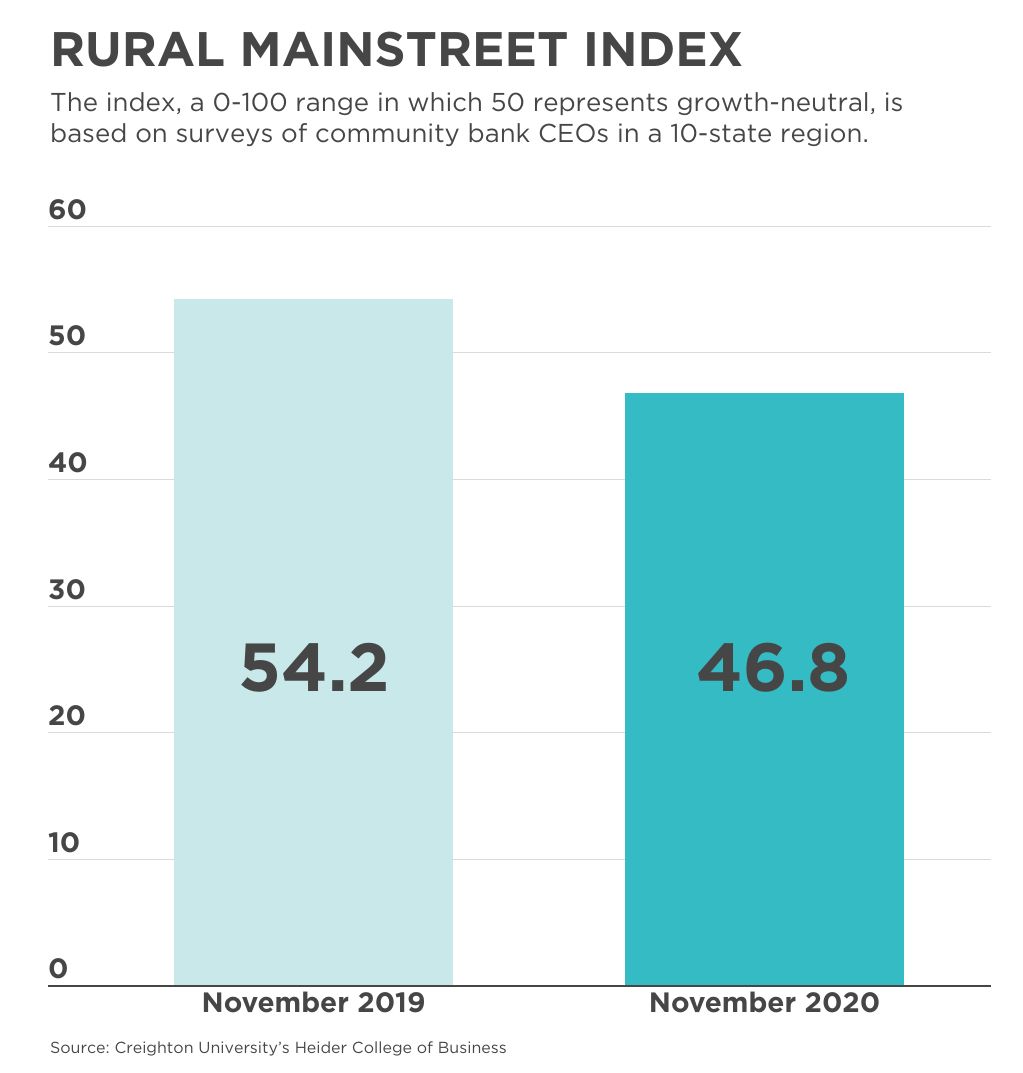[section]
[section-item]
[row]
[column 12]

[/column]
[/row]
[/section-item]
[/section]
The worsening COVID-19 pandemic will likely lead to lower sales during the 2020 holiday shopping season, according to the latest monthly survey of rural bankers.
Bankers surveyed in November’s
Rural Mainstreet Index expect a 3.1% drop in holiday retail sales this season over last year. Nearly 55% of bankers in rural parts of 10 states are projecting a decrease in holiday sales, while about 16% anticipate an increase.
Overall, this month’s retail-sales index slumped to 37.9 compared to October’s 46.8.
“Higher unemployment and business closures linked to COVID-19 continue to harm the region’s retailers,” said Ernie Goss, a professor at Creighton University’s Heider College of Business, which produces the Rural Mainstreet Index.
The survey's overall index— a real-time analysis of the rural economy—dropped to 46.8 in November from October’s 53.2. That marks the first time since April that the index has dropped month-over-month. It’s the lowest level since August but still well ahead of the 35.5 reading in March when the pandemic began.
Any score below 50 suggests a shrinking economy, while a score above 50 suggests a growing economy.
Recent improvements in agriculture commodity prices, federal farm support payments, and the Federal Reserve’s record low interest rates have underpinned the rural economy in the 10 states covered in the survey, said Goss.
“Still, only 6.5% of bankers reported economic improvements from October, while 12.9% detailed economic pullbacks for the month,” said Goss.
The confidence index, which reflects bank CEO expectations for the economy six months out, dipped to 50.0 from October’s 51.6 but still remained at growth-neutral.
“COVID-19-related farm support payments and improving grain prices have supported confidence offsetting pessimism from the impact of the pandemic,” said Goss.
This month, bankers reported record lows in loan volume among farmers as that index fell to its lowest reading since the survey began in 2006. The lending index for November plummeted to 25.8 from October’s 46.8.
